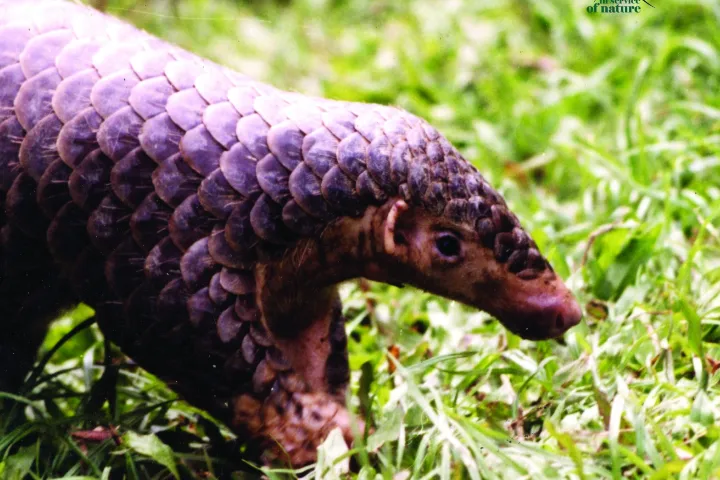

Representational image. Alert villagers of Arunachal Pradesh's Silluk village saved a rare and endangered Chinese pangolin from a poacher (Pic. Courtesy Wildlife Trust of India)
Prompt action on the part of farmers in Silluk village in Arunachal Pradesh’s East Siang district saved the precious life of a rare Chinese pangolin. This creature which is native to the northern Indian subcontinent, northern parts of Southeast Asia and southern China is listed as critically endangered in the Red List of the International Union for Conservation of Animals since 2014 and is protected under Schedule I of the Wildlife (Protection) Act, 1972.
On perceiving a poacher in their area, a group of farmers of Silluk became alert and they swiftly intercepted him while trying to extract a pangolin from its burrow. While in the melee the poacher managed to escape, the locals were able to identify the rescued animal as a Chinese pangolin. The mammal was safely handed over to the forest department by Kepang Nong Borang, Chairman of Silluk Swachh Abhiyan, a local green squad initiative.
SSA has been working in collaboration with the Wildlife Trust of India to protect and preserve the natural heritage in the Siang basin.
Talking to the media, Dr. Bhaskar Choudhury, Division Head, Wild Rescue and Head Vet NE, WTI said: “We applaud the proactive actions of the farmers of Silluk village for saving the pangolin from the clutches of the illegal wildlife trade.”
Pangolin is one of the world’s most trafficked animals and is constantly threatened due to the demand for its scales and skin. While the scales are used in traditional Chinese medicine which are claimed to treat ailments such as heart disease and supposedly have aphrodisiac properties, the skin is used for making leather products. Its scales are also used in the narcotics industry as they are used for making psychotropic drugs.
In August SSA members had rescued another pangolin near the Mebo Reserve Forest which had fallen victim to a dog attack while foraging for food near paddy fields. Finding the creature in a bad shape, Borang sought WTI’s help. The injured animal was medically examined and treated by WTI’s Dr. Panjit Basumatary and was released back into its natural habitat in the presence of senior forest officials of Arunachal Pradesh from the Pasighat Wildlife Division.
Cyprus President Nikos Christodoulides and Prime Minister Narendra Modi on Monday viewed the mountains near…
Cyprus President Nikos Christodoulides said he and Prime Minister Narendra Modi discussed expanding bilateral ties…
Prime Minister Narendra Modi said on Monday that India and Cyprus will develop a strong…
The European Union and China conducted the 40th iteration of their Human Rights Dialogue on…
Prime Minister Narendra Modi was awarded the Grand Cross of the Order of Makarios III…
External Affairs Minister S Jaishankar held a telephonic conversation with his UAE counterpart Sheikh Abdullah…